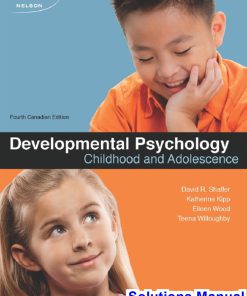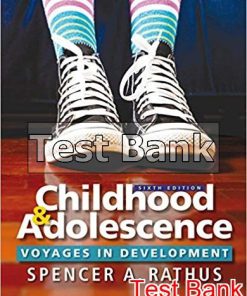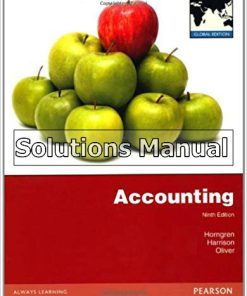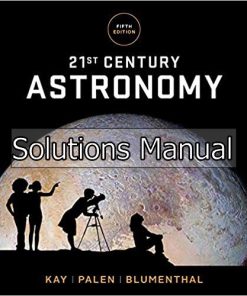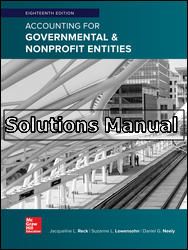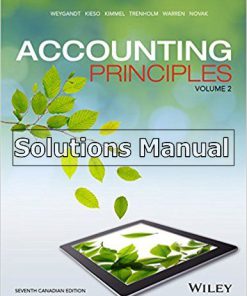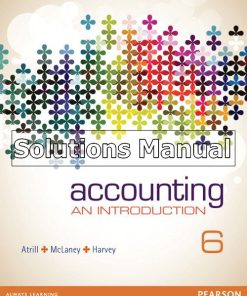Childhood and Adolescence Voyages in Development 6th Edition Rathus Solutions Manual
$26.50$50.00 (-47%)
Childhood and Adolescence Voyages in Development 6th Edition Rathus Solutions Manual.
You may also like
This is completed downloadable of Childhood and Adolescence Voyages in Development 6th Edition Rathus Solutions Manual

Product Details:
- ISBN-10 : 9781305504592
- ISBN-13 : 978-1305504592
- Author: Spencer A. Rathus
Table of Content:
- Part 1: What Is Child Development?
- Chapter 1: History, Theories, and Methods
- 1.1 What Is Child Development? Coming to Terms with Terms
- 1.2 Theories of Child Development
- 1.3 Controversies in Child Development
- 1.4 How Do We Study Child Development?
- 1.5 Ethical Considerations
- Chapter Review
- Key Terms
- Part 2: Beginnings
- Chapter 2: Heredity and Conception
- 2.1 The Influence of Heredity on Development: The Nature of Nature
- 2.2 Chromosomal and Genetic Abnormalities
- 2.3 Heredity and the Environment: Nature versus Nurture
- 2.4 Conception: Against All Odds
- 2.5 Infertility and Assisted Reproductive Technology
- Chapter Review
- Key Terms
- Chapter 3: Prenatal Development
- 3.1 The Germinal Stage: Wanderings
- 3.2 The Embryonic Stage
- 3.3 The Fetal Stage
- 3.4 Environmental Influences on Prenatal Development
- Chapter Review
- Key Terms
- Chapter 4: Birth and the Newborn Baby: In the New World
- 4.1 Countdown…
- 4.2 The Stages of Childbirth
- 4.3 Methods of Childbirth
- 4.4 Birth Problems
- 4.5 The Postpartum Period
- 4.6 Characteristics of Neonates
- 4.7 Sudden Infant Death Syndrome (SIDS)
- Chapter Review
- Key Terms
- Part 3: Infancy
- Chapter 5: Infancy: Physical Development
- 5.1 Physical Growth and Development
- 5.2 Nutrition: Fueling Development
- 5.3 Development of the Brain and Nervous System
- 5.4 Motor Development: How Moving
- 5.5 Sensory and Perceptual Development: Taking in the World
- Chapter Review
- Key Terms
- Chapter 6: Infancy: Cognitive Development
- 6.1 Cognitive Development: Jean Piaget
- 6.2 Information Processing
- 6.3 Social Influences on Early Cognitive Development
- 6.4 Individual Differences in Cognitive Functioning among Infants
- 6.5 Language Development
- 6.6 Theories of Language Development: Can You Make a Houseplant Talk?
- Chapter Review
- Key Terms
- Chapter 7: Infancy: Social and Emotional Development
- 7.1 Attachments: Bonds That Endure
- 7.2 When Attachment Fails
- 7.3 Day Care
- 7.4 Emotional Development
- 7.5 Personality Development
- 7.6 Gender Differences
- Chapter Review
- Key Terms
- Part 4: Early Childhood
- Chapter 8: Early Childhood: Physical Development
- 8.1 Growth Patterns
- 8.2 Motor Development
- 8.3 Nutrition
- 8.4 Health and Illness
- 8.5 Sleep
- 8.6 Elimination Disorders
- Chapter Review
- Key Terms
- Chapter 9: Early Childhood: Cognitive Development
- 9.1 Jean Piaget’s Preoperational Stage
- 9.2 Vygotsky’s Views on Early Childhood Cognitive Development
- 9.3 Other Factors in Early Childhood Cognitive Development: The Home Environment, Preschool, and Tel
- 9.4 Theory of Mind: What Is the Mind? How Does It Work?
- 9.5 Development of Memory: Creating Documents, Storing Them, Retrieving Them
- 9.6 Language Development: Why “Daddy Goed Away”
- Chapter Review
- Key Terms
- Chapter 10: Early Childhood: Social and Emotional Development
- 10.1 Influences on Development: Parents, Siblings, and Peers
- 10.2 Social Behavior: In the World, among Others
- 10.3 Personality and Emotional Development
- 10.4 Development of Gender Roles and Gender Differences
- Chapter Review
- Key Terms
- Part 5: Middle Childhood
- Chapter 11: Middle Childhood: Physical Development
- 11.1 Growth Patterns
- 11.2 Overweight Children
- 11.3 Childhood Asthma
- 11.4 Motor Development
- 11.5 Disorders That Affect Learning
- Chapter Review
- Key Terms
- Chapter 12: Middle Childhood: Cognitive Development
- 12.1 Jean Piaget: The Concrete-Operational Stage
- 12.2 Moral Development: The Child as Judge
- 12.3 Information Processing: Learning, Remembering, Problem Solving
- 12.4 Intellectual Development, Creativity, and Achievement
- 12.5 Language Development
- Chapter Review
- Key Terms
- Chapter 13: Middle Childhood: Social and Emotional Development
- 13.1 Theories of Social and Emotional Development in Middle Childhood
- 13.2 The Family
- 13.3 Peer Relationships
- 13.4 The School
- 13.5 Social and Emotional Problems
- Chapter Review
- Key Terms
- Part 6: Adolescence
- Chapter 14: Adolescence: Physical Development
- 14.1 Adolescence
- 14.2 Puberty: The Biological Eruption
- 14.3 Brain Development
- 14.4 Emerging Sexuality and the Risks of Sexually Transmitted Infections
- 14.5 Health in Adolescence
- 14.6 Eating Disorders: When Dieting Turns Deadly
- 14.7 Substance Use and Substance Use Disorders
- Chapter Review
- Key Terms
- Chapter 15: Adolescence: Cognitive Development
- 15.1 The Adolescent in Thought: My, My, How “Formal”
- 15.2 Gender Differences in Cognitive Abilities
- 15.3 The Adolescent in Judgment: Moral Development
- 15.4 The Adolescent in School
- 15.5 The Adolescent at Work: Career Development and Work Experience
- Chapter Review
- Key Terms
- Chapter 16: Adolescence: Social and Emotional Development
- 16.1 Development of Identity and the Self-Concept: “Who Am I?” (And Who Else?)
- 16.2 Relationships with Parents and Peers
- 16.3 Sexuality: When? What? (How?) Who? Where? and Why? – Not to Mention, “Should I?”
- 16.4 Juvenile Delinquency
- 16.5 Suicide: When the Adolescent Has Nothing – Except Everything – to Lose
- 16.6 Epilogue: Emerging Adulthood – Bridge between Adolescence and the Life Beyond
- Chapter Review
- Key Terms
- Answers to Active Reviews
- Glossary
- References
- Name Index
- Subject Index
People Also Search:
childhood and adolescence voyages in development
childhood and adolescence voyages in development 6th edition rathus
childhood and adolescence voyages in development 6th edition
childhood and adolescence voyages in development 6th edition solution manual download pdf
childhood and adolescence voyages in development 6th edition download scribd

